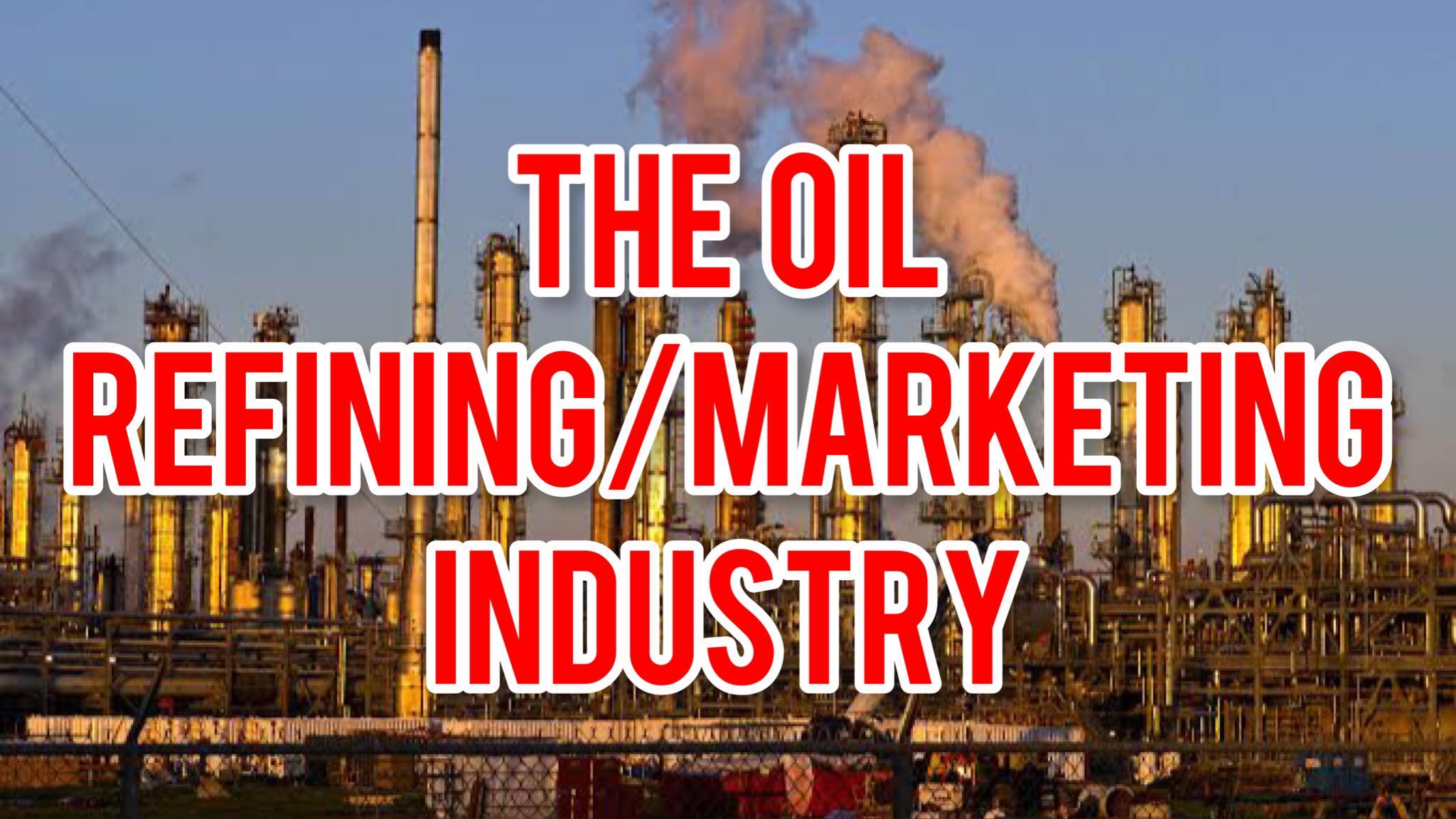
How Many Jobs Are Available In Oil Refining/Marketing
If you’re curious about the job availability and opportunities in the oil refining/marketing industry, then keep reading as we take you through world of oil refining/marketing and the number of jobs available in this industry. The world of oil refining/marketing is vast and ever-evolving, providing a multitude of career paths and employment options. In this article, we’ll explore the various jobs available in oil refining/marketing, shedding light on the perplexing and dynamic nature of this sector.
Understanding the Oil Refining and Marketing Industry
It’s essential to have a solid understanding of the oil refining/marketing industry before delving into the specifics of job opportunities. This industry transforms crude oil into useful products like gasoline, diesel, and jet fuel, playing a crucial role in the worldwide energy landscape. It also includes the marketing, distribution, and consumer sales of these products.
How Many Jobs Are Available in Oil Refining/Marketing?
There are over 1.5 million jobs available in the oil refining/marketing industry according to the US Bureau of Labor Statistics. In the oil refining and marketing industry, there is a wide range of job opportunities across various functions and disciplines. Some of these jobs include; Refinery Operators, Process Engineers, Chemical Engineers, Mechanical Engineers, Electrical Engineers and Environmental Specialists etc.
These jobs represent a wide range of job opportunities within the oil refining/marketing industry. Keep in mind that the specific job titles and functions may vary from one company to another, and the industry is subject to changes influenced by market conditions, technological advancements, and environmental considerations.
Also Read: How Many Jobs Are Available In Power Generation
Exploration and Production Jobs
The upstream sector of the oil and gas industry involves exploration and production, where professionals are responsible for locating and extracting crude oil. These roles require not only technical expertise but also a deep understanding of geological and environmental factors:
Geologists
Geologists play a pivotal role in the early stages of oil exploration. They analyze rock formations, study seismic data, and evaluate the Earth’s subsurface to identify potential oil reserves. Geologists are essentially the treasure hunters of the industry, using their knowledge to guide drilling efforts.
Drilling Engineers
Drilling engineers are the architects of oil extraction. They design drilling plans, select the appropriate equipment, and oversee drilling operations. Their work is critical in ensuring that wells are drilled safely and efficiently.
Rig Operators
Rig operators are the hands-on workers on drilling platforms. They operate drilling equipment and oversee the extraction process, often working in challenging and remote environments. These professionals are essential for bringing crude oil to the surface.
Refinery Operations
Refinery operations form the core of the downstream sector, where crude oil is transformed into valuable petroleum products. This sector boasts a wide range of roles that are essential for the smooth operation of refineries:
Refinery Operator
Refinery operators are the unsung heroes of the refining process. They are on the front lines, monitoring equipment, adjusting processes, and ensuring that safety and environmental protocols are followed rigorously. These individuals work in shifts to maintain continuous operation.
Process Engineers
Process engineers are the brains behind refining operations. They constantly analyze data and fine-tune processes to maximize efficiency and minimize waste. They are responsible for ensuring that the refinery runs optimally, saving both time and resources.
Maintenance Technicians
Maintaining a refinery is no small feat. Maintenance technicians are responsible for inspecting, repairing, and maintaining equipment. They play a crucial role in preventing costly downtime and ensuring the safety of the facility.
Marketing and Sales
Once the petroleum products are refined, they need to find their way to consumers. Marketing and sales professionals are at the forefront of this effort:
Sales Representatives
Sales representatives build relationships with clients, whether they are fuel distributors, industrial consumers, or retail businesses. They understand their clients’ needs and ensure that the right products are delivered promptly.
Marketing Managers
Marketing managers are responsible for crafting marketing strategies to promote petroleum products effectively. They analyze market trends, identify target demographics, and develop campaigns that engage customers and enhance brand recognition.
Logistics and Distribution
The logistics and distribution sector is the bridge between refineries and end-users, requiring meticulous planning and execution:
Logistics Coordinators
Logistics coordinators are the orchestrators of product transportation. They plan delivery routes, manage transportation schedules, and consider factors such as fuel costs and environmental regulations to ensure efficient and cost-effective product distribution.
Truck Drivers and Tanker Operators
Truck drivers and tanker operators are the workforce on the move, responsible for physically transporting petroleum products. Tanker operators, in particular, must undergo specialized training to handle hazardous materials safely.
Also Read: How Many Jobs Are Available In Hotels/Resorts
Environmental and Safety Compliance
With increasing awareness of environmental concerns, roles related to safety and environmental compliance have gained prominence:
Environmental Engineers
Environmental engineers focus on minimizing the environmental impact of refinery operations. They develop and implement strategies to reduce emissions, manage waste, and ensure compliance with stringent environmental regulations.
Safety Inspectors
Safety inspectors play a critical role in maintaining a secure work environment. They conduct regular inspections, enforce safety protocols, and ensure that all employees adhere to safety standards to prevent accidents and environmental incidents.
Research and Development
Innovation is the lifeblood of the oil refining and marketing industry. Research and development professionals continuously push the boundaries of technology and sustainability:
Chemical Engineers
Chemical engineers are at the forefront of innovation. They work on developing new processes and products that not only improve efficiency but also reduce the industry’s environmental footprint. They explore advanced materials and technologies to extract more value from crude oil.
Scientists
Scientists within the industry conduct research to discover innovative materials and technologies applicable to oil refining and marketing processes. They focus on sustainability, seeking alternatives to traditional practices and materials.
Is oil refining marketing a good career path?
Ultimately, whether a career in oil refining/marketing is a good choice for you depends on your personal interests, values, and career aspirations. It’s essential to conduct thorough research, gain relevant education and experience, and stay informed about industry trends and developments before making a decision. Additionally, considering the broader energy sector and its potential for growth and change may help you make a more informed choice about your career path.
Also Read: Is oil refining marketing a good career path?
Opportunities and Challenges in Oil Refining/Marketing
While the oil refining/marketing industry indeed presents a wide array of job opportunities, it is not without its challenges. The industry is subject to fluctuating oil prices, growing competition from renewable energy sources, and increasing pressure to reduce its environmental impact. Job seekers considering a career in this field should be prepared to adapt to these dynamic challenges while contributing to the industry’s evolution.
Conclusion
The oil refining and marketing industry present a vast array of job opportunities across its upstream and downstream sectors. Whether you have a passion for engineering, environmental responsibility, marketing, or logistics, there’s a role for you in this dynamic field. While the industry has its challenges, it also offers the chance to be a part of an essential global sector that continually evolves to meet the world’s energy needs.
FAQs
What educational requirement is needed to work in the oil refining/marketing industry?
The educational requirements vary depending on the specific job. Entry-level positions may require a high school diploma, while more technical roles often require a bachelor’s degree in engineering or a related field.
Are there opportunities for career advancement in this industry?
Yes, there are ample opportunities for career advancement. With experience and additional training, individuals can move up the ranks and take on more specialized or managerial roles.
How is the job outlook in the oil refining and marketing industry?
The job outlook can be influenced by factors like oil prices and environmental regulations. However, the industry continues to evolve, offering opportunities for those willing to adapt.
Is it possible to work in this industry with a focus on sustainability and environmental responsibility?
Absolutely. There’s a growing demand for professionals who can help the industry become more sustainable. Roles in environmental compliance and renewable energy integration are becoming increasingly important.
What skills are valuable for success in this industry?
Key skills include problem-solving, adaptability, technical knowledge (for engineering roles), communication, and a commitment to safety and environmental responsibility.

Sage is a financial/consumer journalist and senior editor, personal finance, of TrendsHQ. EXPERTISE: Personal Finance, Careers, Jobs, Scholarships, and Entertainment.
